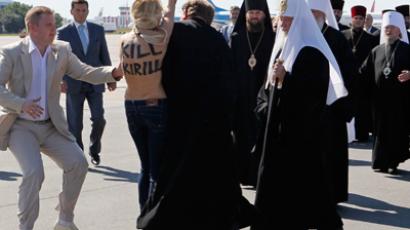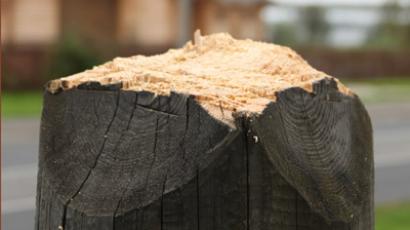State Duma weighs law protecting religious sentiment
As many countries face public unrest over alleged insults to religious sentiments by the authors of the controversial video ‘Innocence of Muslims,” the Russian Lower House took the first move to outlaw insults to religions.
The State Duma approved a special address ‘On protection of the religious feelings of the citizens of Russia,’ which was submitted jointly by all four parliamentary parties.When MP Yaroslav Nilov of the LDPR party, the head of the Lower House’s Legislative Committee, presented the document, he cited a number of “sacrilegious, outrageous, obscurantist situations and events” that took place in 2012. Among these, the parliamentarian listed “the situation with Pussy Riot,” the desecration of icons, Nazi and Satanist graffiti painted on churches and synagogues and the assassination of two Muslim clerics in Russia’s internal republics of Tatarstan and Dagestan. At least two churches were destroyed in the Russian Federation in 2012: The burnt Orthodox Church in Krasnodar and the razed Pentecostal Church in Moscow, Nilov said. The MP argued that a campaign of cross-cutting was especially worrying, as bounty lists were published on the Internet for various acts of sacrilege.He argued that Russia was facing a campaign aimed at destabilizing the country, and called for the Lower House to take urgent measures to curb the growing problem. Dmitry Sablin of the parliamentary majority United Russia supported the proposal, and said that the address would strengthen the church, which he called “an inseparable part of our people’s culture.” The statement demonstrated that Russian society is united in its support of traditional values, he said.“We want to stress the fact that those who cut crosses and defile the holy places do not express the position of the part of the society that is at least slightly significant,” Sablin said. United Russia MP Sergey Zheleznyak, Deputy Chair of the State Duma, claimed that it was necessary to institute specific punishments for insulting believers on the Internet, especially on blogs and social networks. “We have to increase the efficiency of legal practice in order to duly block the unlawful information in the information networks,” he said. “I think that the courts must be allowed to consider such cases in a fast mode to prevent the spreading of the illegal and dangerous content.”But well-known political scientist Dmitry Oreshkin argued that the document allows the government to punish any criticism of religion, and likened officials who supported the initiative to Soviet-era apparatchiks. “There is a group of people in power who switched from one ideological service (to the bright Communist future) to another – to the service to the Russian Orthodox Church,” Oreshkin said.Passage of such legislation will spark a deeper crisis, as it lays the foundation for conflicts between Russia’s many different religions and denominations, he said.So far, the profile committee of the Lower House suggested administrative offenses for insulting believers’ feelings, punishable by fines of 100,000 to 200,000 rubles ($3,000 to $6,000). Russia already considers vandalism, the defiling of graves and inflicting damage to cultural objects to be criminal offenses; these articles of the code do not cover damages to feelings or sentiments, however, only damage to material objects.














